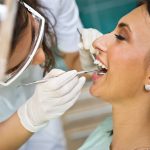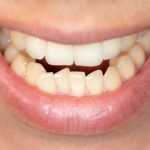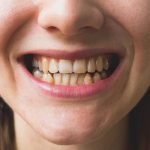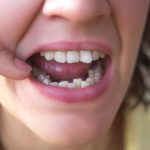Exploring Rabbit Dental Health: How Many Teeth Do Rabbits Have?
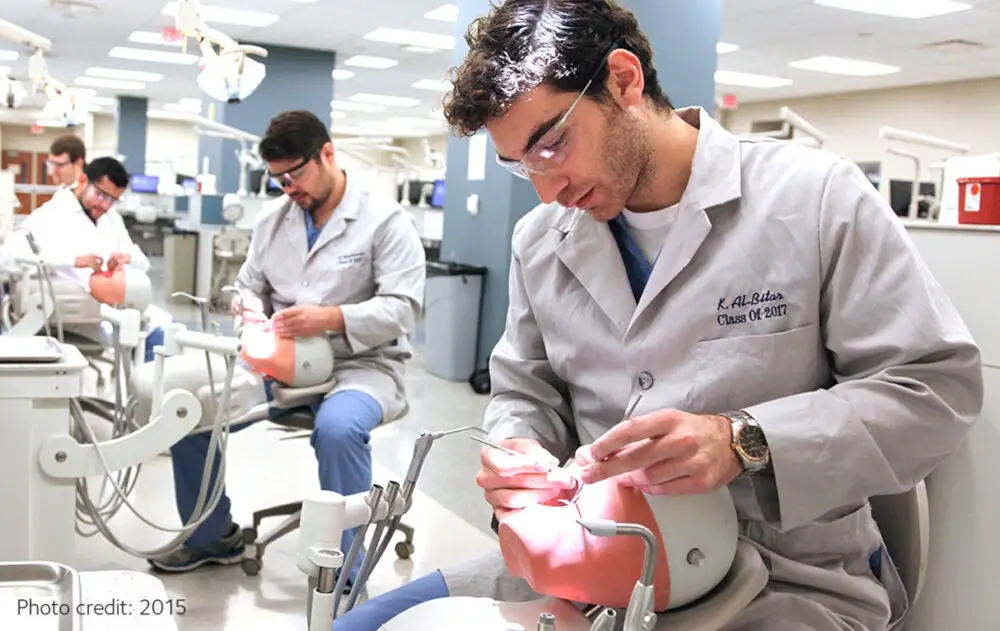
Rabbits are adorable and lovable animals, but their dental health is often overlooked. While most people focus on a rabbit’s cuddliness and cuteness, their teeth are a crucial aspect of their overall well-being. As with other herbivores, rabbits’ teeth are essential for their survival, and any issues with their teeth can lead to severe health problems. Therefore, exploring rabbit dental health and understanding how many teeth they have is crucial for any rabbit owner or enthusiast. Rabbits have fascinating teeth that continuously grow throughout their lives. These teeth are designed to help them chew and grind fibrous vegetation, such as hay, grass, and vegetables. Rabbits have four incisors, two on the top and two on the bottom, and a set of molars at the back of their mouths. Their teeth are open-rooted, meaning they grow continuously throughout their lives, and they require regular wear and tear to prevent overgrowth. Thus, understanding the number of teeth rabbits have, their structure, and their growth patterns is essential to ensure their dental health and overall well-being.
Proper dental health is crucial for rabbits as they are herbivores and their teeth constantly grow throughout their life. Rabbits have 28 teeth, including four incisors and 24 molars. These teeth play a vital role in breaking down food and maintaining a healthy digestive system. If their teeth become overgrown or misaligned, it can lead to a range of health problems such as malnutrition, gastrointestinal stasis, and even death. Therefore, it is important to provide rabbits with a proper diet that includes a variety of hay, fresh vegetables, and limited amounts of fruit. Regular check-ups with a veterinarian and offering chew toys can also help keep their teeth healthy and prevent any potential dental issues.
Knowing the number of teeth rabbits have is crucial for their dental health. Rabbits have a total of 28 teeth, including four incisors, two canines, and 22 molars. These teeth play a vital role in a rabbit’s life, as they use them to grind up tough fibrous food, like hay, to extract the necessary nutrients. However, rabbits’ teeth continually grow throughout their life, and if they become too long, it can cause serious health issues, such as malocclusion, abscesses, or infections. Regularly checking a rabbit’s teeth and ensuring they are the correct length is essential to maintaining their overall health and wellbeing. Knowing the number of teeth rabbits have is the first step in understanding how to care for their dental needs properly.
Rabbit Teeth Anatomy
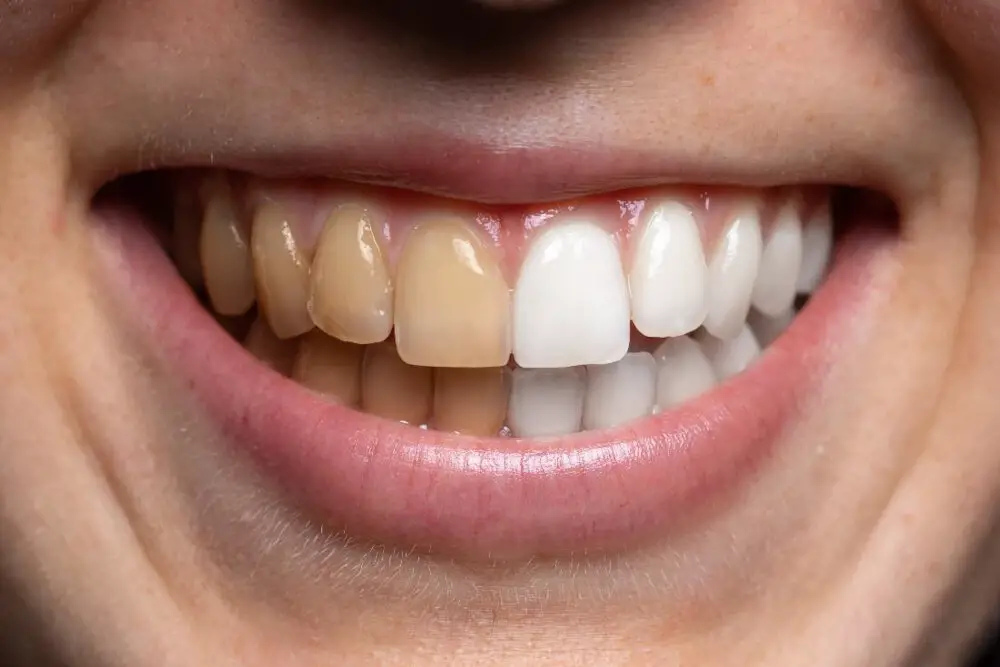
Rabbit teeth anatomy is quite unique among mammals. Rabbits are known for having continuously growing teeth, which means that their teeth never stop growing throughout their lifespan. They have a total of 28 teeth, including four incisors and 24 molars. The incisors are located in the front of the mouth and are used for biting and cutting food. The molars, on the other hand, are located in the back of the mouth and are used for grinding and chewing food. Both incisors and molars are important for a rabbit’s dental health and must be properly cared for to prevent any dental problems. One of the most interesting features of rabbit teeth anatomy is the fact that their teeth are open-rooted. This means that the teeth grow continuously from the base, and the nerves and blood vessels are exposed. This makes them susceptible to damage and infection if not properly maintained. In addition to regular dental check-ups, rabbits require a diet that is high in fiber to help wear down their teeth naturally. Without proper dental care, rabbits can develop dental problems such as malocclusion, abscesses, and overgrown teeth, which can be painful and even life-threatening. Therefore, it is essential to pay close attention to a rabbit’s dental health to ensure they live a happy and healthy life.
Rabbits, like other mammals, have different types of teeth that serve different functions. They have four incisors in the front of their mouths that are used for cutting and biting. Behind the incisors, rabbits have a gap called a diastema, where they do not have any teeth. The diastema allows rabbits to hold and manipulate food while they chew it with their molars and premolars. Rabbits have a total of 28 teeth, with six upper and six lower molars and premolars on each side of their mouths. These teeth are used for grinding and crushing food. Additionally, rabbits’ teeth grow continuously, and they require regular wear to prevent overgrowth and dental problems. Therefore, it is crucial to ensure that rabbits have a healthy diet that includes enough fiber to help wear down their teeth naturally.
Rabbits have four types of teeth that serve different functions. The incisors, located at the front of the mouth, are used for biting and cutting food into smaller pieces. The canines, located just behind the incisors, are used for grasping and tearing food. The premolars, located further back in the mouth, are used for grinding and crushing food. Finally, the molars, located at the back of the mouth, are also used for grinding and crushing food, but are larger and stronger than the premolars. All of these teeth work together to help rabbits properly chew and digest their food, which is important for their overall health and well-being.
In any educational or informative material, illustrations or images are an essential tool to aid in understanding complex concepts or ideas. The use of visuals, such as diagrams, pictures, or graphs, can significantly enhance the reader’s comprehension and retention of information. In the case of exploring rabbit dental health and understanding how many teeth rabbits have, illustrations can provide a clear and concise depiction of the rabbit’s dental anatomy. By providing a visual representation of the rabbit’s teeth and their placement, readers can better understand the importance of dental care for their pets and how to maintain their dental health. Additionally, images can make the content more engaging and enjoyable, which can further increase the reader’s interest and motivation to learn.
How Many Teeth Do Rabbits Have?

Exploring Rabbit Dental Health: How Many Teeth Do Rabbits Have?As prey animals, rabbits possess a fascinating set of teeth to assist in their survival. Unlike humans, rabbits have four sets of incisors, two on the top and two on the bottom, totaling 16 teeth. These front teeth are designed for cutting and slicing food, which is necessary for their herbivorous diet. Rabbits also have two sets of molars, three on each side of the upper jaw and two on each side of the lower jaw, resulting in 28 molars. These molars are used for grinding and chewing, making it possible for rabbits to digest their food thoroughly. It’s essential to note that rabbit’s teeth never stop growing, and their diet plays a crucial role in maintaining healthy teeth. A diet that lacks fiber and roughage may result in overgrown teeth, causing dental problems such as malocclusion. Malocclusion occurs when the teeth do not align correctly, causing discomfort and pain. Providing your rabbit with plenty of hay, fresh vegetables, and water can help prevent dental problems and keep their teeth healthy. Regular checkups with a veterinarian can ensure your rabbit’s dental health is in check and catch any potential problems early on.
Rabbits are known for their adorable appearance and fluffy tails, but seldom do people think about their teeth. These small, furry creatures have an interesting dental structure that is essential for their survival in the wild. The total number of teeth rabbits have is 28, which consists of 4 incisors, 2 canines, 16 premolars, and 6 molars. These teeth are constantly growing throughout their lifetime, and they rely on a high fiber diet to help wear them down. Inadequate dental care can lead to severe dental problems, such as overgrown teeth and malocclusion, which can cause pain, discomfort, and even death if left untreated. Therefore, it is crucial to provide proper dental care and nutrition to ensure the health and well-being of these adorable pets.
Rabbits are mammals with continuously growing teeth that help them to grind and process their diet of tough plant material. They have a total of 28 teeth, with 2 pairs of upper and lower incisors, 6 pairs of upper and lower molars, and 2 pairs of upper and lower premolars. The incisors are used for cutting and nipping, while the molars and premolars are used for grinding and chewing food. The molars and premolars are arranged in a unique pattern of three teeth per side, making it easier for them to grind and crush their food. Maintaining good dental health in rabbits is crucial, as their teeth can grow too long and cause painful dental problems. Regular dental checkups and a healthy diet can help prevent dental issues in rabbits.
When it comes to dental anatomy, rabbits have a unique set of teeth that differ from other animals. Compared to humans who have two sets of teeth, rabbits have four sets of teeth that continually grow throughout their lifetime. Their front teeth, also called incisors, are long and sharp, which they use for cutting and slicing food. Additionally, rabbits have two pairs of molars at the back of their mouths, which are used for grinding and crushing food. Unlike other animals like dogs or cats, rabbits do not have canine teeth, which are used for tearing and ripping meat. Overall, the dental anatomy of rabbits is specialized for their herbivorous diet of grasses and hay, and regular dental care is necessary to prevent dental problems that can lead to serious health issues.
Common Dental Issues in Rabbits
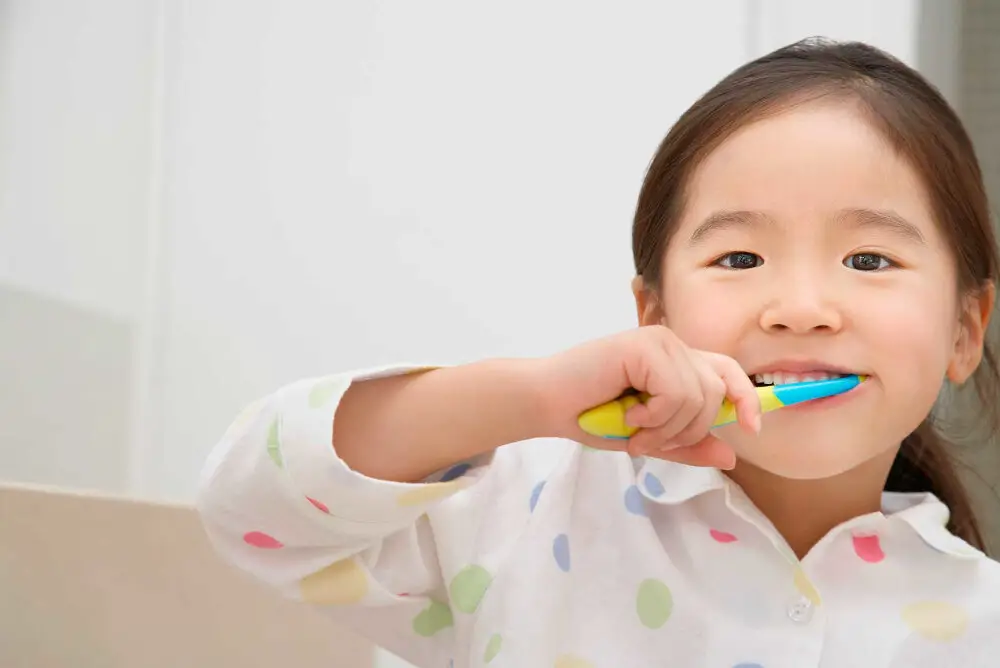
Rabbits are prone to several dental issues that can lead to severe health problems if left untreated. One of the most common dental issues in rabbits is malocclusion, a condition where the teeth do not meet correctly, leading to overgrowth and misalignment. This condition can cause pain, discomfort, and difficulty in eating, leading to malnutrition and weight loss. Rabbits with malocclusion require regular dental checkups, and their teeth may need to be trimmed frequently to prevent overgrowth. Additionally, dental abscesses are also common in rabbits, which can be caused by tooth decay, injury, or infection. These abscesses can cause swelling, pain, and discharge, and may require antibiotics or surgery for treatment. Another common dental issue in rabbits is spurs or sharp points on their teeth. These spurs can cause damage to the mouth and tongue, making it difficult for rabbits to eat and drink. Spurs are usually caused by wear and tear on the teeth, and they require regular trimming to prevent further damage. Additionally, rabbits may suffer from tooth root abscesses, which can be caused by bacterial infections, tooth decay, or injury. These abscesses can cause pain, swelling, and difficulty in eating or drinking. Treatment for tooth root abscesses may require antibiotics or surgery, and it is important to catch them early to prevent further complications. Overall, it is crucial to maintain good dental health in rabbits to prevent these common dental issues and ensure their overall health and wellbeing.
Rabbits are prone to a wide range of dental problems that can have serious consequences for their health and wellbeing. One of the most common dental issues in rabbits is malocclusion, which occurs when the teeth do not meet correctly and can lead to sharp points, overgrowth, and other issues. Other common dental problems in rabbits include abscesses, infections, and periodontal disease. These issues can cause pain, difficulty eating, and even lead to life-threatening conditions if left untreated. Proper dental care, including regular checkups and dental cleanings, is essential for maintaining a rabbit’s oral health and preventing these types of issues from occurring.
Rabbits’ dental health can be severely affected if they suffer from dental problems like malocclusion, overgrown teeth, or infections. Malocclusion or misaligned teeth can cause uneven wear, which can lead to sharp edges and points that can cause pain and discomfort. Overgrown teeth can prevent rabbits from eating and drinking, leading to malnutrition, dehydration, and gastrointestinal stasis. Dental infections can cause abscesses, which can spread to other parts of the body and cause systemic illness. Additionally, dental problems can cause rabbits to stop grooming themselves, leading to skin and coat issues. Therefore, it is crucial to monitor rabbits’ dental health and seek veterinary care when necessary to prevent such problems and ensure their overall well-being.
Maintaining proper dental health is crucial for rabbits to avoid painful dental issues. To prevent dental problems, rabbits need to consume a diet that is high in fiber and chew on hay or other roughage regularly. Additionally, it is essential to monitor your rabbit’s teeth regularly and take them to the vet for dental check-ups. In case of any dental issue, treatment should be immediate to prevent worsening of the condition. Treatment may involve trimming overgrown teeth, extraction of abscessed or damaged teeth, and providing medication to relieve pain or treat infection. Taking these necessary steps for dental care will help keep your rabbit’s teeth and gums healthy and free from pain.
Maintaining Rabbit Dental Health
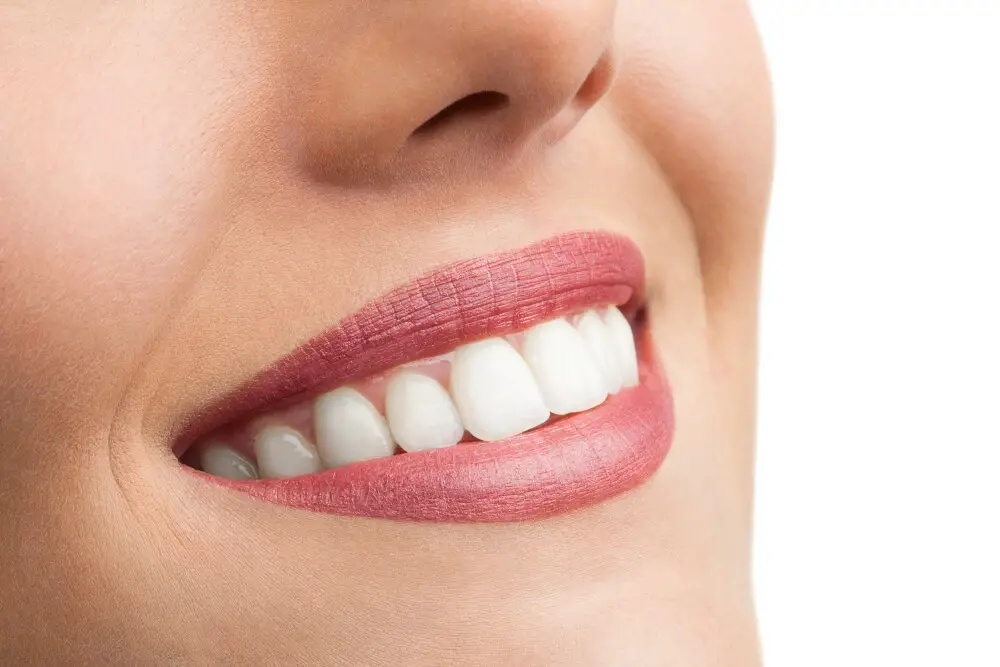
Rabbits are herbivores, which means their diet consists of fibrous plant material. Their teeth are adapted to this type of diet and constantly grow throughout their life. Therefore, it is essential to ensure proper dental health for rabbits. Regular check-ups with a veterinarian specializing in exotic pets are necessary to prevent dental problems. Rabbits with dental issues may show signs of drooling, difficulty eating or weight loss. Dental care for rabbits includes a balanced diet with plenty of hay, daily access to fresh water and regular teeth checks. Providing chewing toys such as untreated wood or cardboard can also help maintain healthy teeth. Periodic teeth trimming may be necessary for rabbits with overgrown teeth. This is a delicate procedure that requires professional expertise. If not done correctly, it could result in severe pain or even death. Rabbit owners should avoid feeding their pets a diet high in sugars and carbohydrates, as it can lead to dental problems. Rabbits are prone to overgrown teeth, which can cause a variety of health issues. Therefore, maintaining proper dental health is critical to their overall well-being.
Maintaining good dental health in rabbits is crucial for their overall wellbeing. Rabbits have a complex dental system, with 28 teeth that continuously grow throughout their lives. To ensure good dental health, it is important to provide them with a healthy and fibrous diet, such as hay and fresh vegetables, which will help wear down their teeth naturally. Additionally, regular check-ups by a veterinarian who specializes in rabbit care is essential to identify and treat any dental problems early on. Providing a safe and stimulating environment with plenty of chew toys will also help rabbits to maintain good dental health by keeping their teeth occupied and preventing boredom, which can lead to destructive chewing behavior. By following these simple steps, rabbit owners can ensure their pets lead happy and healthy lives.
Maintaining good dental health is essential for rabbits, and there are several tips to prevent dental issues in these furry pets. Firstly, feeding them a diet rich in hay and fresh vegetables can keep their teeth healthy and strong. Secondly, providing them with chew toys and blocks made of wood or hard materials can help wear down their teeth naturally. Regular check-ups with a veterinarian who specializes in rabbits can also help detect dental problems early on, preventing them from worsening. Finally, avoiding sugary treats and limiting starchy foods like pellets can prevent the buildup of plaque and tartar on their teeth. By following these tips, rabbit owners can ensure their pets have healthy and happy teeth.
When it comes to dental problems in rabbits, prevention is key. However, if your rabbit experiences any dental issues, it’s crucial to seek veterinary attention immediately. Signs of dental problems in rabbits include a decreased appetite, drooling, and reluctance to eat hay or hard foods. In severe cases, a rabbit may stop eating altogether, which can lead to serious health issues. In addition to seeking veterinary care, you can help prevent dental problems in your rabbit by providing a healthy diet that includes plenty of hay and avoiding sugary treats. Regular dental check-ups with a qualified veterinarian can also help catch any potential issues before they become serious.
Maintaining proper dental health in rabbits is crucial for their overall well-being. Rabbits have a unique dental anatomy, with teeth that continuously grow throughout their lifetime. This makes it essential to provide them with a diet containing sufficient fiber to wear down their teeth naturally. Dental problems, such as overgrown teeth, can lead to painful and potentially life-threatening conditions, such as abscesses, infections, and even death. Regular dental check-ups by a veterinarian, along with a balanced diet, can help prevent these issues and ensure good dental health in rabbits. Proper dental care is vital for rabbits to live a happy, healthy life.
Rabbits are known for their adorable appearance and often depicted with their long ears and big eyes. However, their dental anatomy is equally intriguing. Unlike humans who have 32 teeth, rabbits have a total of 28 teeth, which include 6 incisors, 2 canines, and 20 cheek teeth. The front 4 incisors are visible, and they continuously grow throughout their life. These teeth are essential for rabbits to sustain their herbivorous diet, and they use their molars and premolars to grind and chew their food. As a result, it is crucial for rabbit owners to monitor their pet’s dental health regularly to ensure they are maintaining optimal oral hygiene.
Maintaining good dental health is crucial for the overall well-being of rabbits. To keep their teeth healthy, rabbits should be provided with a diet that is high in fiber and low in sugar. This means feeding them hay, fresh vegetables, and a limited amount of fruits. It’s also important to regularly check their teeth for any signs of overgrowth or malocclusion, which can lead to painful dental problems. Regular visits to a veterinarian who specializes in exotic pets can help ensure that any dental issues are caught early and treated effectively. Additionally, providing rabbits with plenty of opportunities to chew on safe toys and objects can help keep their teeth worn down and healthy. By following these simple tips, rabbit owners can help ensure that their furry friends maintain good dental health throughout their lives.
Conclusion

In conclusion, exploring rabbit dental health highlights the importance of understanding the anatomy and function of their teeth. It is essential to know that rabbits have a total of 28 teeth, including four incisors, two canines, and 22 molars. These teeth play a crucial role in their diet, digestion, and overall well-being. Neglecting their dental health can lead to severe health issues, such as malocclusion, abscesses, and infections. Therefore, as responsible pet owners, we must prioritize regular check-ups, a balanced diet, and proper dental care to ensure the longevity and quality of life for our furry friends.
